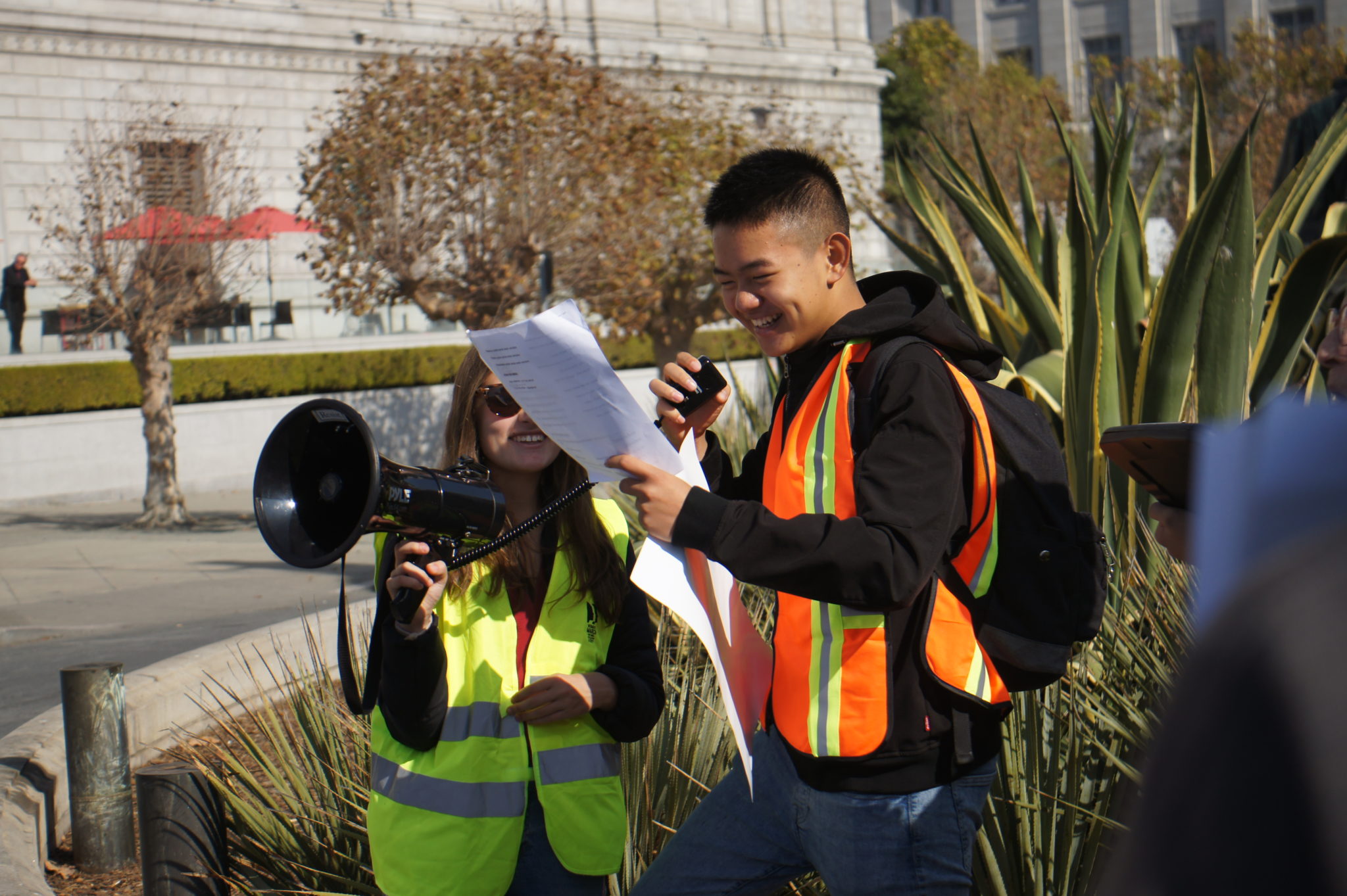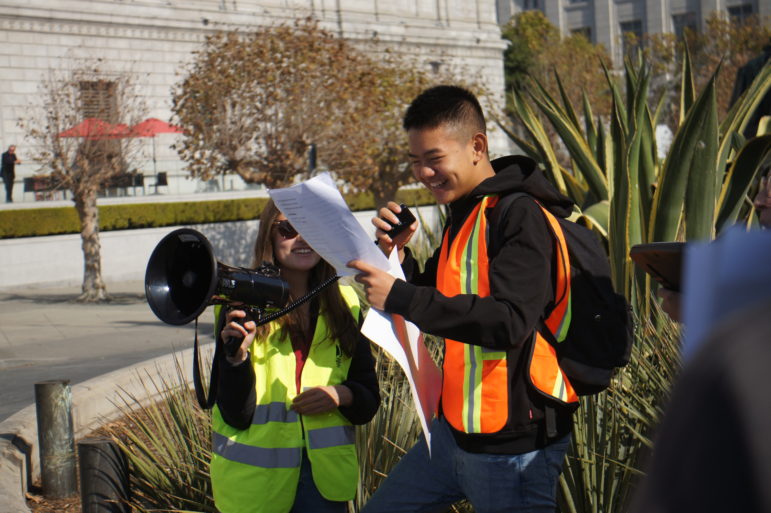
On Saturday, Nov. 9, students and teachers gathered outside of the Asian Art Museum in San Francisco to march for equity in education. The event lasted from 11 a.m. to 12:30 p.m. and consisted of a march and multiple demonstrations from student organizers. The San Francisco event was one of three marches happening across the Bay Area in Oakland and San Jose.
The march began with an array of speakers, including Sophia Andary, the co-chair of the San Francisco Women’s March, and multiple student speakers.
The march was intended to spread awareness for an upcoming bill that organizers hope will appear on ballots in 2020.
“Prop 13 [was passed] in 1978 reduc[ing] property taxes and sets a limit so they can’t keep increasing. It mainly affects the elderly,” said junior Vidushi Mittal, an organizer from San Mateo High School. “There’s a law that could be on the ballot that would [increase commercial property taxes] and reallocate 12 billion dollars.”

The majority of the K-12 students who marched are unable to vote.
“[We marched to] raise awareness to get the law on the 2020 ballot.” Mittal said. “Teachers are insanely underpaid right now, so [the bill could] increase wages. Teachers can vote, so they should. In general, the education system can get a lot of improvement. $12 billion can’t hurt.”
The students cited the simple fix that the bill provides as their reasons for supporting the bill.
“It’s a practical solution to a longstanding problem,” said Mittal. “This money can and will be used to benefit students.”
Many students from San Mateo Activist’s Coalition were involved in organizing the march, which led to the march’s collaboration with Gen-Up, which is a local student activist organization. Gen-Up publicized and organized the march.
Students felt inclined to become involved due to how close to home these issues are.
“I don’t think education is talked about a lot, in terms of public education and funding in our schools.” said Mills High School junior Lilian Chang. “That’s really weird, because education is such a big part of our lives. I wanted to shed light on that.”
The organizers emphasized that the March for Education was a community event that everyone should feel inclined to pitch in, regardless of their political affiliations. “You don’t have to be politically charged.” Chang said. “Education is a human right. This is something that benefits all of us. Public education is a way to uplift people. As a student, I think that this is something that we should support.”
The student organizers highlighted that the march was rooted in student involvement, but they also encouraged local teachers to attend and make their voices heard.
“I marched for my students,” said Dena Johnson, an Aragon English teacher. “We’re advocating for smaller class sizes, better programs and higher wages.”
These issues appear to have deep roots in America’s education system, and teachers are beginning to take a stand against injustices. “When I went into teaching, I was laid off three times because there was so much turnover,” Johnson said. “There’s always been issues.”
Teachers marched not only to support themselves, but everyone involved in the education process.
“I care about the subject,” said Victoria Daniel, an Aragon English teacher. “I wanted to support my students and to encourage them to stand up for themselves.”
If the bill passes, schools across the state may see significant changes in their budgets.



